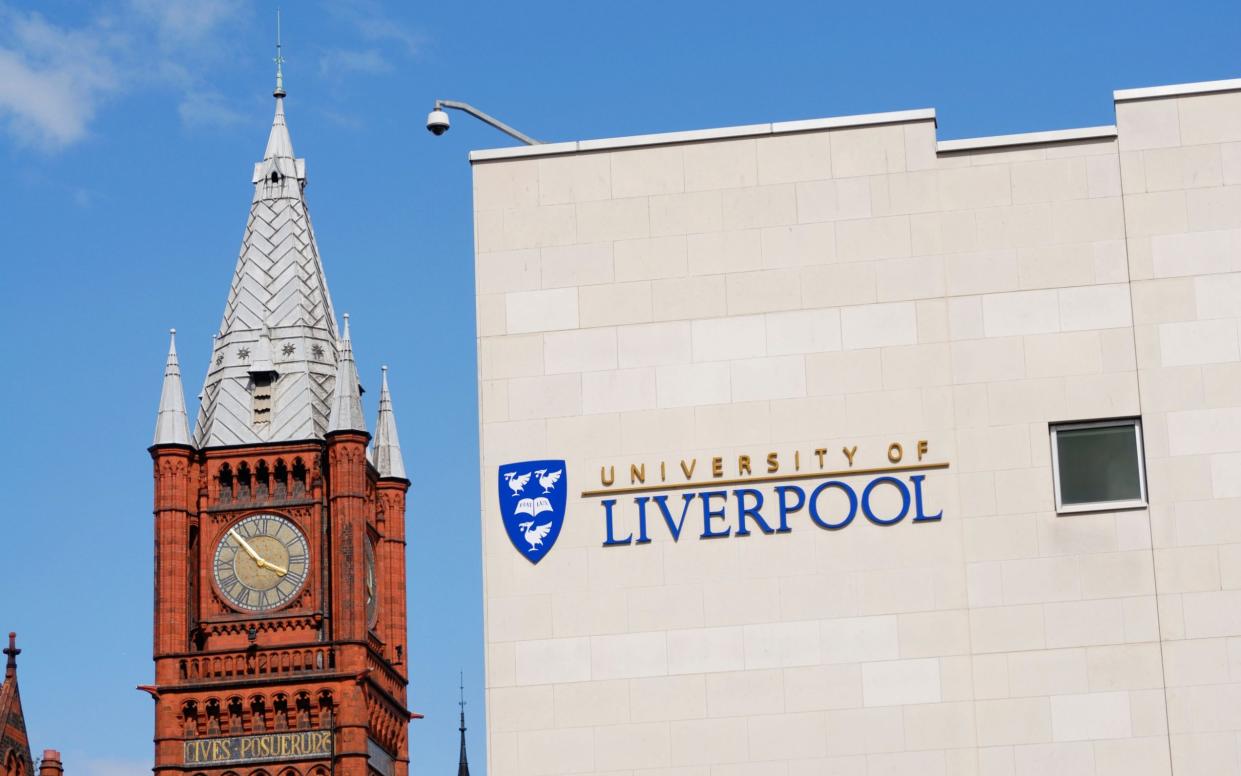Outcry as university tells staff to teach that whiteness and heterosexuality are a problem

History lecturers at the University of Liverpool have been advised to “problematise” whiteness and heterosexuality in their seminars.
The advice has been given in guidance on how to “diversify” and “decolonise” the history curriculum, sent this week to academics at Liverpool – a member of the prestigious Russell Group universities.
But last night critics lambasted its recommendations as “ideologically driven” and “divisive”.
In the report, entitled History Curriculum Diversity Audit, staff are encouraged to “think creatively” about how they can bring questions of race and gender into the topics they teach.
Giving examples of how they might do so, the guidance asks them to consider: “Can a module that teaches exclusively about race relations do more to problematise and de-centre whiteness?”
Diversity audit
The “diversity audit” also notes that there is a lack of “queer history” in the teachings on gender, while pointing out that there are no seminars “problematising heteronormativity” – a term which refers to treating heterosexuality as the norm.
Elsewhere, it tells history lecturers that it is not enough to simply include more BAME – meaning Black, Asian and Minority Ethnic – women or non-binary scholars on their reading lists.
They are directed that in addition they must discuss the diversity of the reading lists with their students on every module that is taught.
Teaching staff are further told that it is “essential” they make their seminars “safe spaces” because topics such as race and gender can be both “emotional” and “challenging” for students.
Meanwhile, department heads are urged to introduce compulsory training on “inclusive teaching” for all academics to help them “feel more comfortable initiating and managing such conversations”.
Wrong approach
However, one lecturer teaching at Liverpool University, who asked not to be named for fear of professional repercussions, said of the advice: “It’s all ideologically driven, namely Empire is bad. But it’s the wrong way to approach history.
“Historians should have the freedom to teach what they believe is true rather than having an agreed ideology that you’re not supposed to question.
“Also, I’m not quite sure how we are supposed to problematise whiteness.”
Dr Edward Skidelsky, a philosophy academic at Exeter University and co-founder of the Committee for Academic Freedom, agreed: “It’s not the business of universities or university departments to tell lecturers to ‘problematise heteronormativity’ or to ‘de-centre whiteness’, whatever that means.
“University departments should be free to make strategic decisions about teaching and assessment, but they should not impose controversial ideological positions on their members.”
Aggressive ideology
Dr Alka Sehgal Cuthbert, director of Don’t Divide Us, a pressure group which promoted “colourblind anti-racism”, was equally critical.
She said: “Non-activists who want an easy life need to realise decolonising has nothing to do with addressing discrimination or unequal access, nor is it about expanding knowledge.
“Any positive insights it may have once had regarding disciplinary blind spots or neglected past works, have long gone.
“It has morphed into an aggressive and illiberal political ideology that promotes divisive, epistemologically weak concepts like ‘whiteness’ and seeks to impose its narrow, highly speculative interpretation at the expense of genuine academic study that depends on exploring different viewpoints.”
Liverpool’s “diversity audit” comes amid a growing drive among universities to “decolonise” their curriculums.
Last week it was revealed that an academic at the University of Sussex, Dr Zahid Pranjol, had claimed making students sit traditional exams was racist and exposes “colonial biases”.
Inclusive experience
In another example, the University of Cambridge was advertising last month for a PhD student to investigate its plant and animal collection, ranging from tigers to dodos, to root out imperial connections.
A University of Liverpool spokesman said, “We are absolutely committed to an inclusive experience for all our students. Reviewing our curricula to ensure content is reflective of cultural, historical and societal contexts is an important part of this commitment.
“Following recent fruitful and positive conversations within our history department about decolonising the curriculum, a 2020 audit was circulated to colleagues to prompt further thought and discussion. A final decolonisation framework, once developed and agreed, will be a useful and important guide for staff in the development of their modules and, as always, colleagues will retain full academic freedom in how this is best applied.”

 Yahoo News
Yahoo News 
